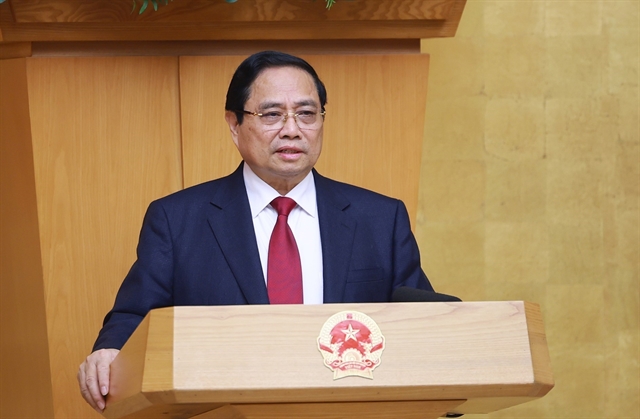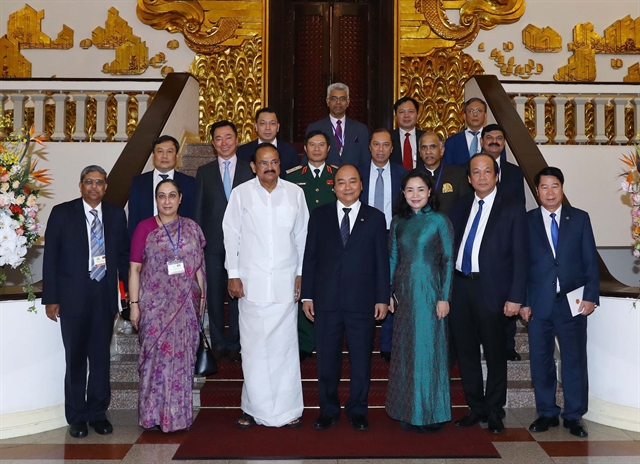 Politics & Law
Politics & Law


|
| Prime Minister Nguyễn Xuân Phúc (fourth right), Vice President of India Venkaiah Naidu (third left) and delegates pose for a group photo. — VNA/VNS Photo Thống Nhất |
HÀ NỘI — Việt Nam welcomes India’s investment in information technology, infrastructure, energy and hi-tech agriculture, Prime Minister Nguyễn Xuân Phúc has said.
Receiving Indian Vice President Venkaiah Naidu, also Chairman of the Rajya Sabha (Upper House) of the Parliament of India, in Hà Nội on Saturday, PM Phúc voiced his belief that the visit will contribute to maintaining political trust and boosting collaboration between the two countries.
Vice President Naidu appreciated Việt Nam’s contributions to religious and Buddhist activities, believing that the 16th UN Day of Vesak hosted by the country would be a success.
The leaders agreed to maintain the exchange of delegations and meetings, people-to-people exchanges and existing co-operation mechanisms.
They emphasised the importance of bilateral co-operation in defence and security. PM Phúc proposed India continue assisting Việt Nam in human resource training, boosting collaboration between the two armies and sharing experience in UN peacekeeping.
Both leaders said economic and trade ties remain a pillar in bilateral relations and agreed to work to lift two-way trade value to US$15 billion. They consented to consider opening the Indian market for Việt Nam’s longan, grapefruit, rambutan and durian, and allowing India’s pomegranate, grapes and millet to enter Việt Nam.
The leaders highlighted the need for intensifying collaboration in other fields such as development co-operation, information technology, science-technology, culture, tourism and people-to-people exchanges.
They pledged to create favourable conditions for Vietjet, Indigo and other airlines to soon launch direct air routes connecting the two nations.
PM Phúc and Vice President Naidu exchanged opinions on regional and international issues of mutual concern and agreed to maintain close co-ordination and mutual support at regional and international forums, particularly within the framework of the UN.
Regarding the East Sea issue, both leaders agreed upon the importance of peace, stability, as well as safety, security and freedom of aviation and navigation, and settlement of disputes through peaceful measures, respecting international law, including the 1982 UN Convention on the Law of the Sea, and soon completing an effective Code of Conduct in the East Sea. — VNS